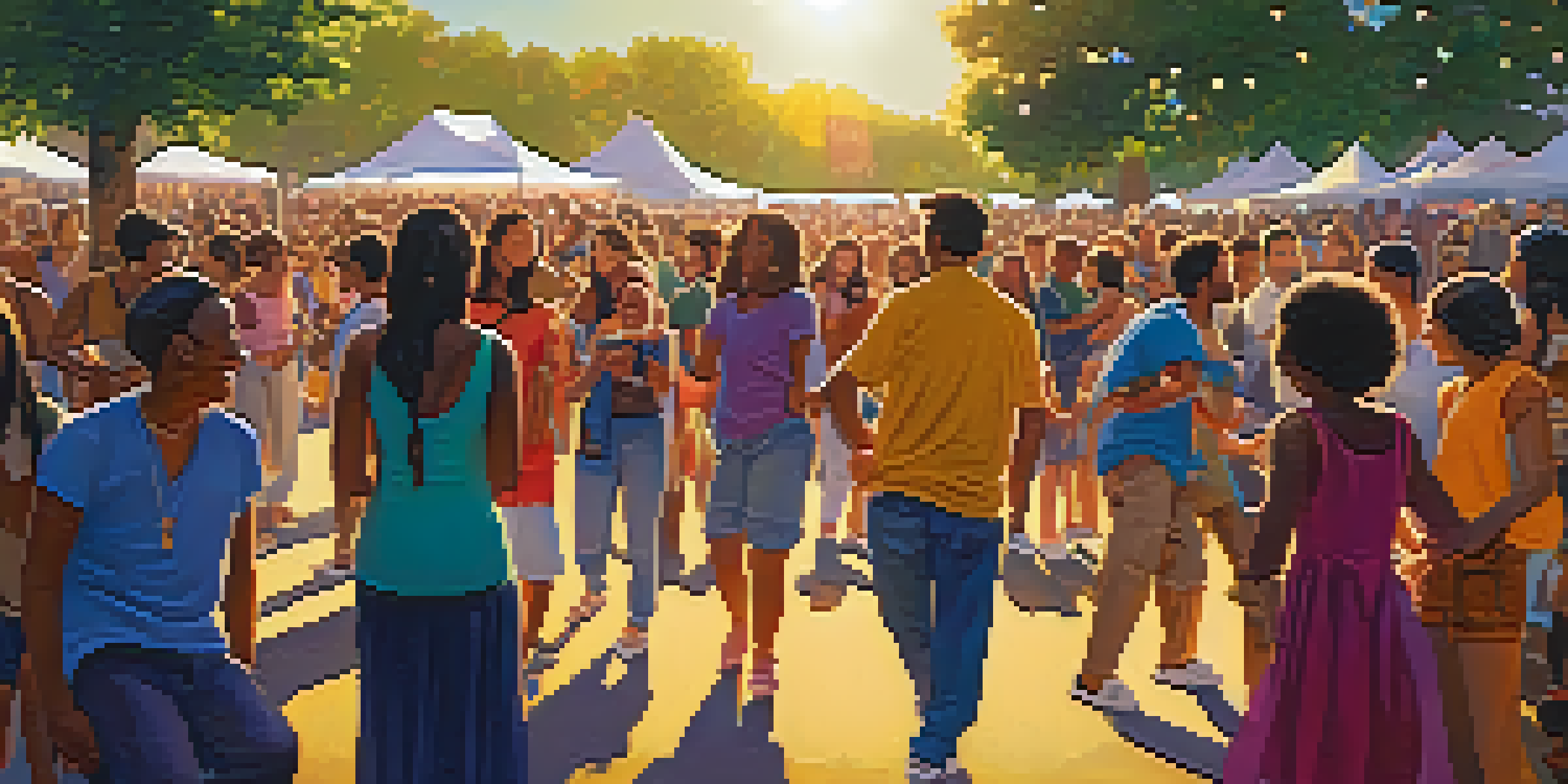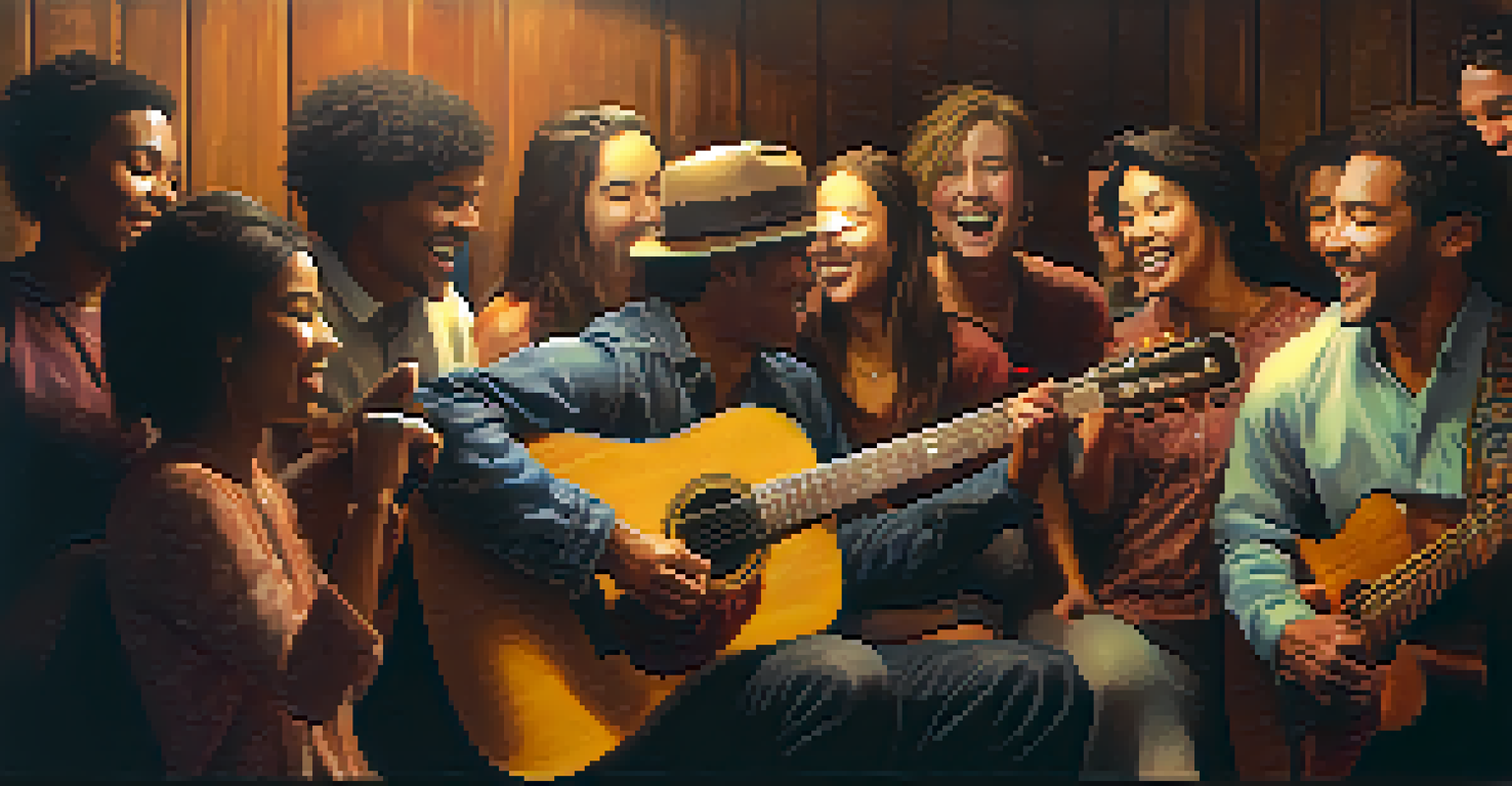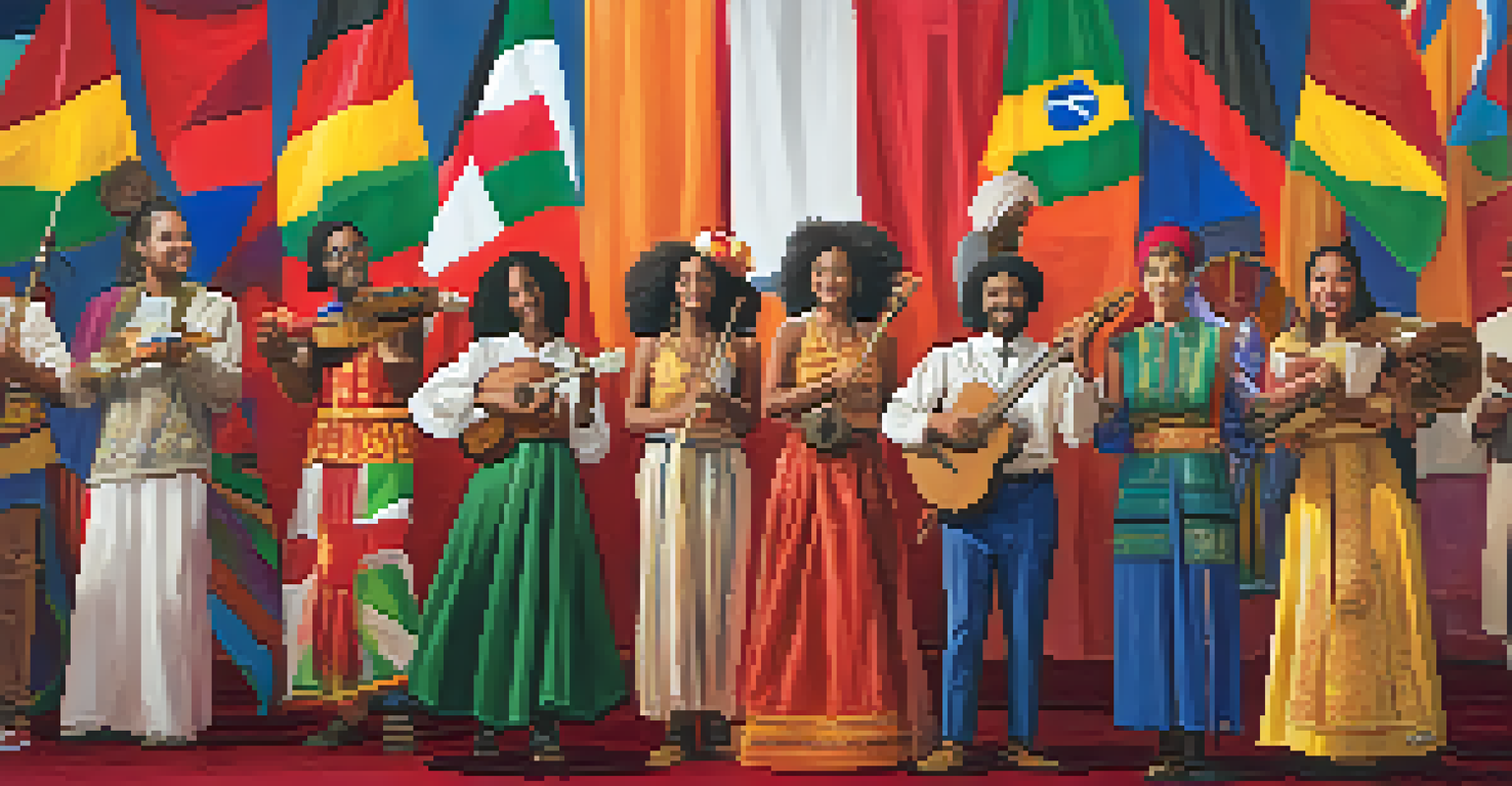Community Resilience: The Role of Music in Collective Action

Understanding Community Resilience and Its Importance
Community resilience refers to the ability of a group to withstand and recover from adversity. This concept is crucial in today's world, where social, economic, and environmental challenges can strike suddenly. When people come together, they can share resources, ideas, and support, creating a more robust community. By fostering connections among individuals, resilience becomes a collective strength that can address and overcome obstacles.
Music is the universal language of mankind.
One of the most effective ways to nurture this sense of community is through shared experiences. Activities that bring people together, whether in times of celebration or crisis, can strengthen bonds and enhance trust. When individuals feel connected to one another, they are more likely to collaborate during difficult times, leading to a unified response to challenges. This solidarity is a key aspect of resilience.
Music, as a universal language, plays a significant role in facilitating these connections. It transcends cultural and linguistic barriers, making it an ideal medium for bringing people together. The emotional power of music can inspire collective action, turning feelings of isolation and despair into solidarity and hope.
The Emotional Power of Music in Communities
Music has a unique ability to evoke emotions and memories, serving as a powerful tool for community connection. Whether it’s a local band performing at a festival or a choir singing at a vigil, music can create shared experiences that resonate deeply. These moments can foster a sense of belonging and remind individuals that they are not alone in their struggles.

Moreover, music can articulate sentiments that may be hard to express in words. During times of hardship, songs can reflect the pain, hope, and resilience of a community. This emotional resonance not only provides comfort but also galvanizes people to come together for a common cause. When individuals feel their emotions are validated, they are more likely to engage in collective action.
Community Resilience Through Music
Music fosters connections among individuals, enhancing community resilience by providing a platform for shared experiences and emotional expression.
For example, during natural disasters, community members often gather for music events to raise funds and boost morale. These gatherings not only provide financial support but also reinforce the community’s commitment to recovery. The act of singing or playing music together transforms individual grief into shared resilience.
Music as a Catalyst for Social Movements
Throughout history, music has been an integral part of social movements. From civil rights anthems to protest songs, music has the power to unite individuals around a shared purpose. When people sing songs that resonate with their struggles, they embody a collective identity, fueling their passion for change.
Where words fail, music speaks.
Take the 'We Shall Overcome' anthem of the civil rights movement, for instance. This powerful song became a rallying cry, bringing together diverse groups in their fight for equality. The emotional weight of the lyrics, combined with the act of singing together, created a sense of camaraderie and determination.
In modern times, we continue to see this phenomenon. Artists use their platforms to address social issues, inspiring fans to take action. Music festivals and benefit concerts often serve as platforms for advocacy, showcasing how art can drive engagement and mobilization around important issues.
Music in Crisis: Healing Through Collective Sound
In times of crisis, music can be a source of healing and hope. Whether it’s a community gathering after a tragedy or a moment of silence followed by song, music provides an outlet for collective grief. These shared experiences allow individuals to process their emotions together, fostering a sense of unity amid turmoil.
For example, in the aftermath of tragic events, communities often organize memorial concerts where people come together to honor victims through music. This communal act not only pays tribute but also serves as a healing mechanism, aiding in the recovery process. It’s a reminder that even in the darkest times, there is a space for connection and support.
Music as a Tool for Social Change
Throughout history, music has united individuals in social movements, serving as a powerful catalyst for collective action and advocacy.
Furthermore, music therapy has gained recognition as a way to help individuals cope with trauma. Group music-making can enhance social bonds, reduce feelings of isolation, and promote emotional expression. By harnessing the power of music, communities can build resilience and navigate the aftermath of crises together.
Building Bridges: Music Across Cultures
Music is a bridge that connects people from diverse backgrounds, fostering understanding and collaboration. Cultural events that celebrate music can create opportunities for dialogue and exchange, breaking down barriers between communities. When individuals engage with different musical traditions, they gain insight into others' experiences and perspectives.
For instance, multicultural festivals often feature a variety of musical styles, encouraging attendees to explore and appreciate the richness of different cultures. This exposure not only enhances community cohesion but also promotes empathy and respect among diverse groups. Music becomes a tool for celebrating differences while also highlighting shared human experiences.
Moreover, collaborative music projects can strengthen ties between communities. When groups come together to create music, they build relationships that can lead to lasting partnerships. These connections are vital for fostering resilience, as they create networks of support that amplify collective action.
Music Education: Nurturing Future Leaders in Communities
Investing in music education is crucial for cultivating future leaders who can drive community resilience. By engaging young people in music, we equip them with skills such as teamwork, creativity, and emotional intelligence. These qualities are essential for effective collaboration and problem-solving in any community setting.
Moreover, music programs often encourage youth to express themselves and explore their identities. This empowerment can lead to increased civic engagement as young individuals become more aware of their role in the community. When they feel confident in their abilities, they are more likely to take initiative and contribute to collective action.
Healing and Unity in Crisis
In times of crisis, music acts as a source of healing, allowing communities to process grief together and build resilience through shared experiences.
Community music initiatives that involve young people can also foster mentorship opportunities. Experienced musicians can guide and inspire the next generation, creating a cycle of support and resilience. As these young leaders emerge, they carry forward the values of collaboration and community engagement that music instills.
The Future of Music and Community Resilience
As we look to the future, the role of music in community resilience will continue to evolve. With advancements in technology, new platforms for musical collaboration and expression will emerge. This accessibility can empower more people to participate in community-building efforts through music, regardless of geographical limitations.
Digital tools and social media provide opportunities for virtual gatherings, allowing communities to connect even when physically apart. Online concerts, collaborative songwriting projects, and music-sharing platforms can foster a sense of belonging and collective action across distances. In times of crisis, these tools can be invaluable in maintaining community connections.

Ultimately, the relationship between music and community resilience will remain strong. As people continue to seek solace, connection, and empowerment through music, communities will find new ways to harness its potential for collective action. Together, we can create a harmonious future where music serves as a catalyst for resilience and unity.